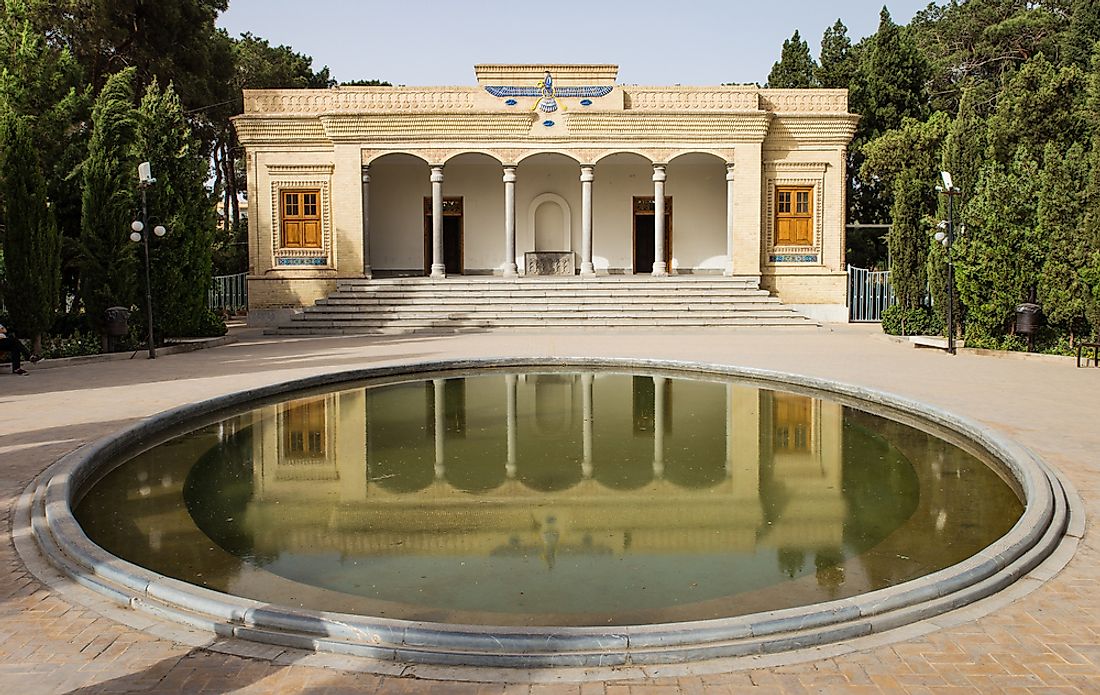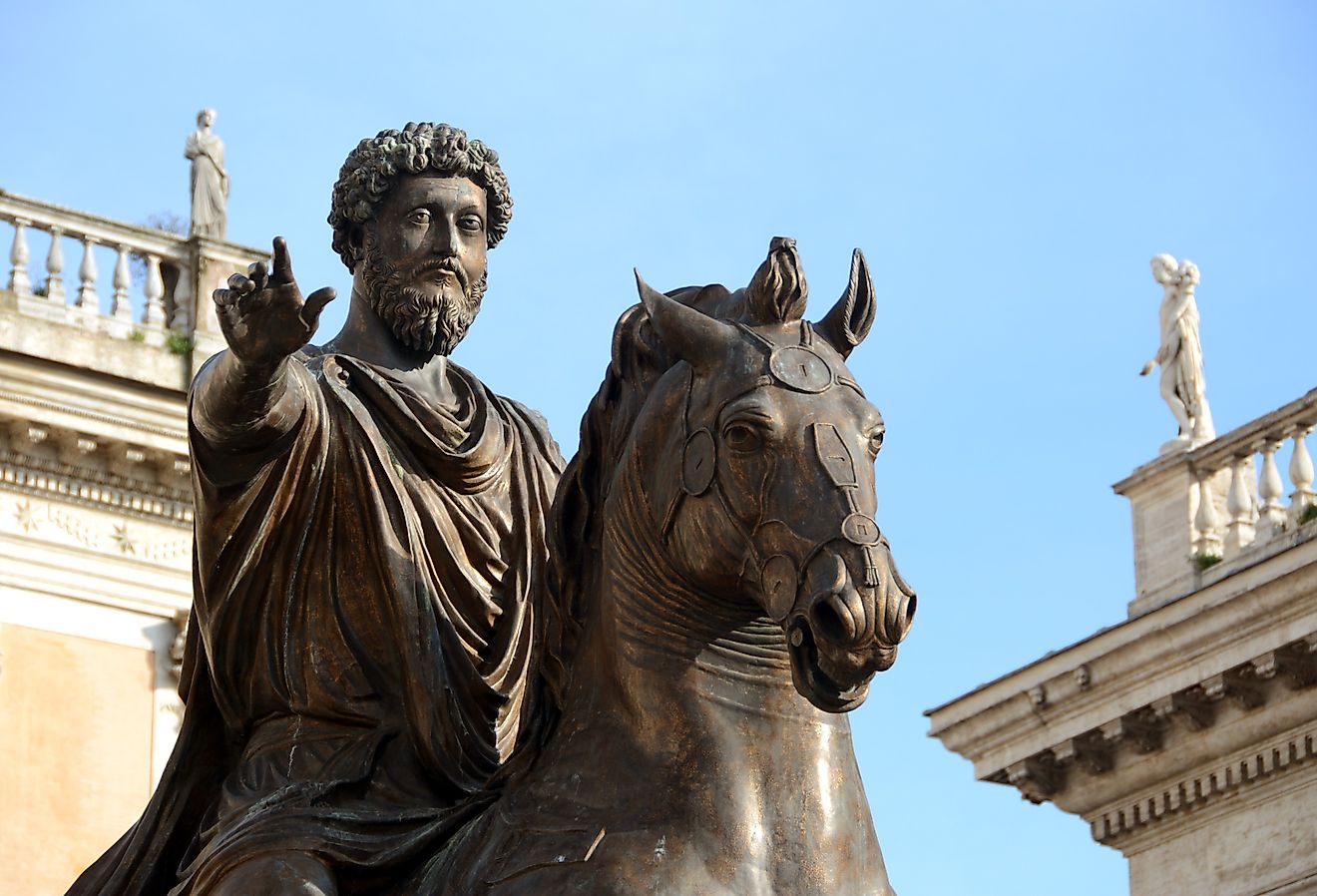Religions That Originated In Greater Iran

Some of the religions that originated in Greater Persia or Greater Iran are Zoroastrianism, Mithraism, Zurvanism, Mazdakism, Mandaeism, Manichaeism, Babism, and the Bahá'í Faith.
Zoroastrianism
Zoroastrianism is one of the oldest religions in the world that mix eschatological monotheism with cosmogonic dualism uniquely from other faiths. The followers of Zoroastrianism believe in the teachings of Zoroaster (an Iranian prophet) who teaches that Ahura Mazda is the Supreme Being. The root of the religion is traced as early as second millennium BCE and was once the state religion between 600BCE and 650 CE. Zoroastrianism began to die off as a result of the Muslim invasion of Persia between 633 and 654. It is approximated that roughly 2.6 million Zoroastrianism followers are still found in Iran and India.
Mithraism
Mithraism was a religion preserved only for the initiates, and it was anchored on Mithras, the god that was worshiped in the Roman Empire between the first and the fourth century CE. The worshippers had a hierarchical system starting from grade one to seven of different types of initiation marked by traditional foods. The initiates were called syndexioi, a group that was “united by the handshake.” The Mithraism is characterized by the concealment in that no one was allowed to disclose anything that goes on during and after initiation to outsiders. The existence of Mithraism had been confirmed by archaeologists who found an artwork scene bearing Mithras’s image slaughtering a bull and sharing a feast with Sol, the god.
Zurvanism
Zurvanism is a subdivision of Zoroastrianism. The followers of the religion believed that Zurvan (the deity creator) procreated twins, Angra Mainyu and Ahura Mazda, described as “equal-but-opposite.” Ahura Mazda was the creator of good things while Mainyu represented the evil. However, the roles of the two twin-brothers changed, and Mazda took over the role of the evil-doer. Zurvan was the only supreme God. This God could not differentiate between good and evil. The Zurvanism followers understood that Zurvan existed alone and with his desire to have offspring, he offered sacrifice for years that led to the birth of Ohrmuzd (doubt), and Ahriman (sacrifice). The religion died off in the 7th century after the fall of Sassanid Empire.
Mazdakism
Mazdakism is a religion that came into existence during the times of Mazdak, a prophet from Iran. Mazdak gained favor and influence during the reign of Emperor Kavadh. He claimed that he was sent by Ahura Mazda, a claim that enabled him to enact public laws and programs that ensured social welfare of the members. Mazdakism followers saw the religion as a better version of the Zoroastrianism, however some argued that the religion copied the Manichaeism doctrines. The Mazdakism doctrines inculcated the belief that there existed two universe principles, Light (good) and Darkness (evil). The two accidentally mixed, contaminating everything apart from God.
Mandaeism
Mandaeism is a religion that had a double view of the world. Its origin is traced to Mesopotamia during the first three century CE. It relies on shared heritage and has no doctrines or religious creeds. The Mandaeism followers are estimated to be ranging 60,000 and 70,000 in number, mostly Semites and Mandaic speakers. Dominican Catholic, described Mandaeans as an extraordinary and singular people who detested Abraham for carrying out circumcision practices and adored John the Baptist. Mandaeans consider Jesus a “false messiah” who deviated from John’s teachings.
Manichaeism
Manichaeism was a religious group in the Sasanian Empire led by Mani, Iranian prophet between 216 and 276 CE. He proclaimed to be the “apostle of Jesus Christ.” Manichaeism was based in Mesopotamian but later spread to other parts of the world such as China and Roman Empire. The religion teachings revolve around creation narrative called motifs and myths. The motifs have it that the world was created, influenced, or organized by two beings who either have complementary roles or compete in creating, influencing, or organizing the world. It also described the struggle between what is termed as “spiritual world of light,” the good, and “material world of darkness,” the evil. Manichaeism followers gradually reduced during the first part of 19th century and the religion was eventually replaced by other religions.
Babism
Babism is a religion currently based in Iran. Ali Muhammad Shirazi started the Babism in 1844. The followers believe in the existence of one God, God of Abraham, who created the world and has control over it. To them, this god is not understandable and remain anonymous. The religion immediately gained a good number of followers in Persia until late 1852 when the number of his followers started to decrease. Qur’an and Islamic traditions are the references materials. The members believed that there were twelve Imams and the last one to die was called Imam Mahdi. Mahdi used to pass the word of God through only selected representatives. According to Twelver Shi’a Islamic, before Imam Mahdi died, he went into the State of Occultation and became inaccessible to his followers. He occasionally gets out of occultation when the world gets oppressed and bring back the true religion to Earth in preparation for judgment day.
Khurramites
Khurramites was a politically oriented religious movement based in Iran. It was founded by a Persian cleric called Sunpadh to replace the earlier version that had an attachment to both Zoroastrianism and Shi’a Islam. Khurramites shot to fame after Babak Khorramdin adopted the religion as a way of rebelling Abbasid Caliphate. Under the leadership of Babak, the followers rejected ownership of resources by the state. They demanded government dissolution and redistribution of state-owned properties. Khurramites doctrines are guided by what they called “principle of the universe” in which Light (good) part got rub out and turned into Darkness.
Bahá'í Faith
In the year 1863, Bahá'u'lláh started the Bahá'í Faith. It teaches about the equality of all human beings in which all religions despite the differences are worthy. Bahá'í Faith was established in Iran and has faced constant persecutions from the radical religions. The religion shares the messages that God is the supreme being and all-powerful. Bahá'u'lláh emphasized that God uses Jesus, Buddha, and Muhammad to bring order in the religions through what he called the Manifestation of God.











